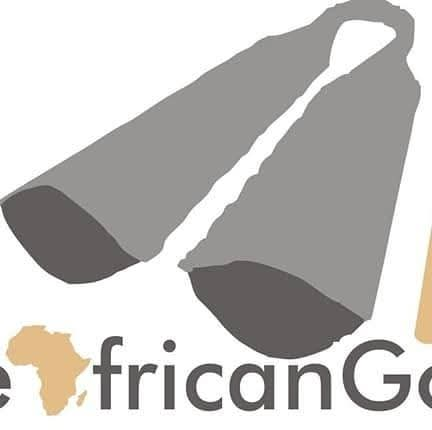
Christopher Oputa has spent over three decades studying the pulse of Nigeria’s photography industry, watching it rise, stumble, reinvent itself and survive endless technological waves. But on a warm Lagos afternoon, dressed in a simple outfit embroidered with the Studio 24 he joked about, the Studio 24 boss spoke with the enthusiasm of someone standing at the beginning, not the end, of a long career.
He was unveiling two things at once: a major empowerment programme for young creatives and the formal return of Kodak to the Nigerian market through Kodak Moments. For Oputa, both stories are connected, and both, he believes, will shape the future of photography in Africa’s largest economy.

The two-day event, which brought together media, creative entrepreneurs and industry veterans, marked the kick-off of Pix-Her Africa Project—an initiative powered by Studio 24, Canon Academy and Kodak Moments and implemented by Kidpreneur Africa. The project offers scholarships to teenagers aged 15 to 18 who will eventually move into paid apprenticeships within Studio 24. It also supports adults who cannot afford tuition fees but have the passion and capacity to build careers in the creative industry.
“We have struggled for years to find the trained people we need,” Oputa said. “But in some countries, they deliberately create talent through strong apprenticeship systems. I saw it. It works. And we decided to start doing the same here.”
Pix-Her Africa, he explained, is designed to create a steady pipeline of young professionals, brand-new photographers, digital printers, editors, technicians and creative entrepreneurs, who will not only fill Studio 24’s growing workforce needs but also help build a stronger industry across the country.
The first day of the programme was timed to coincide with World Premature Babies Day, a symbolic gesture meant to call attention to nurturing young potential early. After sensitisation sessions and the official flag-off, the second day focused on why the global photography giant Kodak had chosen Nigeria for its next move.
Studio 24 first partnered with Kodak in 1998. But Oputa said this new era, Kodak Moments, is a completely different chapter. Unlike the old Kodak, which was heavily camera-focused, Kodak Moments is bringing the production side of photography to the forefront: instant printing machines, personalised photo gift systems, custom imaging technology and on-the-spot photo solutions.
“This is the first time Nigerians are getting direct access to Kodak’s modern printing technology, exactly the same machines used in Europe and America,” he said. “These are not watered-down versions. They are the real thing.”
He emphasised that the Nigerian market is not just ripe but dramatically underexplored. “If you think about it, every human being prints at least two photos a year,” he continued. “In a country with 4 million people, that’s 8 million prints. But in a country with 250 million people? That’s over 500 million prints. And Nigerians will print far more if they have reliable access to the right technology.”
That, he said, is where Kodak Moments comes in, modernising the entire photo-printing ecosystem and turning it into a massive economic opportunity. Oputa said Kodak’s equipment is not only meant to improve print quality but also help people make money.

“Everything Kodak brings helps someone start a business,” he explained. “From quick-print machines to creative gift production, it’s all designed for people who want to earn.”
He described the Nigerian photography market as a “virgin territory”, not because Nigerians have not been taking pictures but because the full technology for monetising personal and event photography has never been locally accessible at this scale. With Kodak now fully present, Studio 24’s role is to distribute the technology, train users and guide them into business.
Studio 24’s survival after more than 30 turbulent years, Oputa said, is rooted in the company’s ability to anticipate change. “Every industry gives you signals,” he said. “The trick is to connect the dots early.”
He recalled the early days of film, the rise of digital cameras, the smartphone wave and the shock many studios suffered when prints dropped. But he said Studio 24 stayed afloat by constantly reinventing its business, shifting from traditional labs to digital systems, expanding into photo books and frames, and later, pushing deeper into corporate imaging, training and equipment distribution.
Now, he believes the next frontier is localising global-standard print technology, giving Nigerians the same instant imaging experiences enjoyed in London, New York or Tokyo.

The partnership extends far beyond Nigeria. Studio 24 is Kodak’s partner across West and Central Africa, positioning the company as a regional gateway for distribution, support and training. Oputa said Kodak is not simply holding an event and disappearing; the brand is “physically back” and ready for long-term engagement with the Nigerian market.
“People keep asking how often this kind of launch will happen,” he said. “The answer is simple. It’s not a temporary event. Kodak is here to stay.”
For the young creatives who attended the launch, the biggest excitement came from the promise of actual jobs, not just training certificates. Oputa confirmed that Studio 24 will employ as many trainees as possible, strengthening its workforce while also allowing graduates to become independent entrepreneurs.
“We are building the people we want to hire,” he said. “And those we cannot absorb immediately will still have the skills to start their own businesses.”
The event marked a symbolic rebirth of two important journeys: Studio 24’s long-standing commitment to the photography industry and Kodak’s renewed confidence in the Nigerian and African markets.
In an era where images define social identity, professional opportunities and cultural expression, Oputa believes this new movement will set off a creative chain reaction, one that will empower thousands, modernise businesses and place Nigeria firmly on the map of global imaging innovation.
As he wrapped up, he offered a simple but firm assurance: “Kodak is back. And this is only the beginning.”
